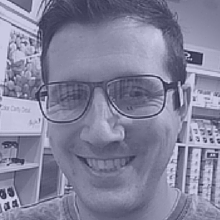As I reach the conclusion of an over decade-long training process to become an internal medicine physician, I find myself facing a dilemma I really did not expect. I am one of the few internists pursuing primary care and am hoping to build my own private practice.
Yet, while my training has prepared me to care for the sickest patients, I really don’t understand how to get paid for my work. The long and complicated medical training process does little to prepare young physicians for real world practice where a plethora of insurance, billing, documentation and pharmaceutical companies prey on naïve young physicians. Instead of teaching young doctors how to be independent leaders in their communities, medical training (pre-med, med school, residency, fellowship) remains stuck in archaic modalities of learning and communication, slow to adapt to modern technologies in a rapidly evolving world. As physicians complete lengthy training, we struggle to take our wealth of knowledge and experience to the community to build bonds to heal people, and instead we increasingly become frustrated employees with a diminishing role and no voice. The system is broken and we need current and future physicians to lead the evolution of health care.
Medical delivery is so fragmented with bureaucracy and specialization that both patients and physicians become exhausted attempting to traverse the convoluted landscape. We eventually take shelter in whatever comfortable scenario we can find, despite mounting frustrations with the breakdown of the doctor-patient relationship. The uncertainty and fear of rising and unpredictable expenses, coupled with loss of time and productivity, drive doctors to choose jobs within massive health care organizations rather than smaller private practices, despite the growing discontent with the loss of autonomy and choice in all aspects of patient care.
Patients and physicians so often share the same frustrations in this corporate medical environment. Short office visits due to overloaded schedules and unrealistic expectations push both doctors and patients to rush through issues instead of taking time to understand each other and build rapport. Increasingly redundant and burdensome documentation requirements drive a wedge, often in the form of a physical computer screen, between doctor and patient, further fracturing the bond. As physicians and patients try to choose the best treatment options, we soon find ourselves drowning in pre-certification forms, denials for payment and frustrating telephone conversations with insurance agents. The overly complicated system of billing and coding, marred with unfamiliar vocabulary, cumbersome paperwork and subtle legal complications, stands as a massive road block to physicians and patients alike and limits our ability to provide individualized care focused on each patient’s needs.
Instead of the the doctor-patient relationship, we develop relationships with health care systems which clearly lack the ability to provide compassionate, thoughtful patient-specific care. This depersonalization creates an environment full of inconsistencies, redundancy and dilution of responsibility. Patients become less trusting of their health care providers, as they watch the demotion of physicians from society leaders and forward thinkers to employees struggling to find their own way through all the muck.
A serious lack of leadership exists in the medical community with respect to political change and the public health agenda. Instead of coming together, we physicians remain fragmented in groups and organizations focused on either individual specialties or outsider interests. While the role of physicians in America’s health care delivery process becomes ever more narrow, I worry that we will have to watch the Headless Monster we have created ravage our society economically, emotionally and ultimately physically, if we do not mount a response. We must form a unified voice of reason that will help bring back the focus to the individual, their doctor and the delicate interpersonal relationship that is the pillar on which all quality medical care is founded.
As a medical student, it is important to realize how the industrialization of medicine will shape your future career. The large health care systems that dictate patient care nowadays also dictate how physicians are reimbursed and rewarded for their work. By this, I mean that payers want you to think that you need them more than they need you. If they can convince you of this, they can pay you less and get cheap labor in order to increase their bottom line and ultimately increase profits for them. The unnecessary rules and red tape limit our professional autonomy, eliminating the doctor-patient relationship that medicine was founded upon. Clearly, this comes at the expense of you and your patients. However, if we strive to treat patients the way they deserve to be treated — humanistically and uniquely — and to reestablish the real mission of our profession and what it truly means to be a doctor, then we can start to get our freedom back.

